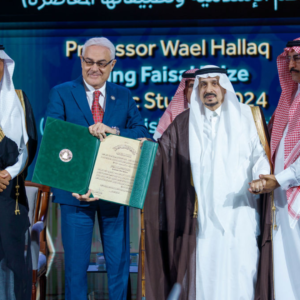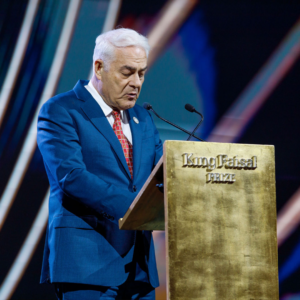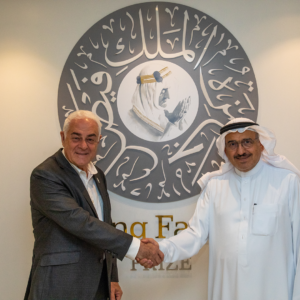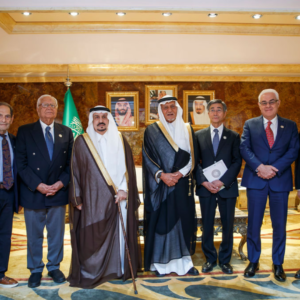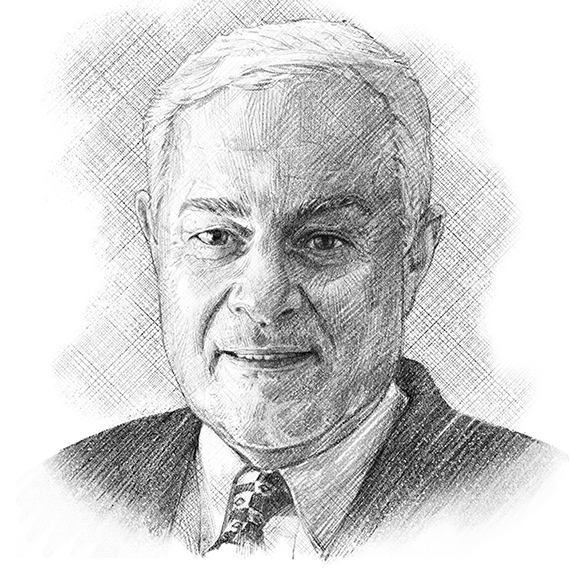

Professor Wael B. Hallaq
King Faisal Prize in Islamic Studies 2024 Laureate
Topic: "Islamic Legislations and their Contemporary Applications"
Miracles occur when intellect and diligence come together

He graduated from the University of Haifa in 1978, then earned a masters degree and a Ph.D. from the University of Washington in 1979. Hallaq joined McGill University as an assistant professor of Islamic law in 1985, after receiving his Ph.D. from the University of Washington in 1983. He became a full professor in 1994, and was named a James McGill Professor in Islamic law in 2005. In 2009, he moved to New York, to become the Avalon Foundation Professor in the Humanities at Columbia University, where he has been teaching ethics, law, and political thought since 2009. Hallaq is considered a world leading scholar in the field of Islamic studies, and has been described as a foremost authority on the Sharia. His research and writings have shaped the Western academic education on Islamic law, and have extended over many periods and subjects, ranging from the formative period of Islam to modern history. He lectured in universities across the world, from Japan, Singapore and Indonesia, to the Middle East, Europe and North America. He has published over eighty articles and numerous books on topics including law, legal theory, philosophy, ethics, political theory, and logic. In 2009, he was listed among the 500 most influential scholars in the studies of Islamic.
Hallaq gained prominence for his doctoral work challenging the notion of the so-called “the closing of the gate of ijtihad,” a narrative that was for long accepted in the field as paradigmatic. His major works include Restating Orientalism: A Critique of Modern Knowledge, and Reforming Modernity: Ethics and the New Human in the Philosophy of Abdurrahman Taha, Authority, Continuity, and Change in Islamic Law, The Origins and Evolution of Islamic Law, Shari`a: Theory, Practice, Transformations, and Islamic Legal Theories: An Introduction to Usul al-Fiqh. Professor Hallaq’s work is widely debated and translated, with several books and dissertations, and numerous articles, devoted to the study and analysis of his writings. His life and work have been featured in many interviews, symposia, talk shows, and documentaries by major media outlets.
In 2015, his Impossible State (2013) won Columbia’s distinguished Book Award for the two years prior, and since it appeared in Arabic in 2014, it has commanded much attention in academic circles and mass media in the Muslim world. In 2020, he won the Nautilus Book Award for Reforming Modernity, and in 2021, he was awarded the TÜBA Prize, given by the Turkish Academy of Science in recognition of innovative and path-breaking scholarship in the Humanities and Social Sciences. Later in the same year, he was elected an Honorary Member of this Academy. Dozens of his major articles and all his books have now been rendered into Arabic and Turkish, and many are translated into several other languages including Indonesian, Japanese, Persian, Urdu, Hebrew, Italian, German, French, and most recently Albanian, Russian, and Bengali.
This biography was written in the year the prize was awarded.

